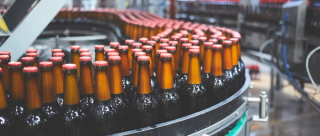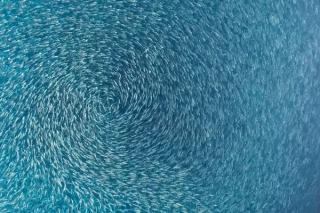
Reducing energy costs while driving decarbonisation in the food & beverage industry
by Vincenzo Giordano, Bob Robinson, Clément Barbaux
View post

The Blue Economy is a sustainable use of ocean resources for economic growth, improved livelihoods and jobs, while preserving the health of the marine and coastal ecosystem. Australia and New Zealand, being large island nations have a significant opportunity to gain high amounts of protein harvest from multiple water bodies. Many of these water bodies have been enjoyed for their great views but can also provide a great amount of wealth to the countries and surrounding area.
Examples of successful Blue Economies can be seen when looking across the Asia Pacific where many other less land dominated countries have taken advantage of the oceans. These countries have harvested the ocean for many years and have built up significant industry clusters and networks of businesses to support marine operations. Although this does put these countries ahead of Australia and New Zealand in terms of quantity of protein that can be harvested, the potential climate change impacts predicted over the next 20 years will level the playing field.
This is due to much of the existing infrastructure potentially requiring resilience upgrades, which can be difficult to undertake due to impacts on operational ports and facilities operations. In this regard, Australia and New Zealand building new facilities to future standards may allow them an edge when entering this market. Further, the ability to design the other new infrastructure and facilities that are being invested in within Australia and New Zealand allow for an opportune time to review what type of services ports and supporting infrastructure may need to provide into the future. This will ensure that growth within the aquaculture sector will be accelerated given the cost gap to enter the market may not be as large a hurdle from a port upgrade perspective.
Changes in technology and more awareness on environmental impact is apparent within the aquaculture industry for Australia and New Zealand. It is clear looking at both country’s strategies, that the decrease in wild caught stock versus farmed stock has been targeted. This will provide for the potential to have a more monitored and better managed source of protein and also ensure that a quantified and measured impact on the environment is provided. It is noted that success in farmed aquaculture will further enhance technology in this space and increase the potential to provide for significant growth within the Australian and New Zealand market.
The focus on technology and moving large scale operations from estuaries into the open ocean also gives rise for the potential for a better managed circular economy, with more interdependency between industries and better efficiencies in product generation and use. Much of the awareness of this can be monitored and quantified through mandatory reporting structures that will shortly be coming to the Asia Pacific shores. This in turn provides for more growth in supporting industries such as feed stock and waste reuse.
There are increasing efforts to establish marine farms offshore rather than within our harbours and estuaries, which are subject to a number of pressures from the land and human activities. Moving farms offshore also reduces the risk from extreme events such as marine heat waves. The open ocean provides a greater potential for resiliency to the rapidly changing climate, but it also brings with it a new set of challenges to ensure the farms are able to withstand the power of the ocean, especially in storms.
The opportunity for aquaculture in Australia and New Zealand is significant, either directly or indirectly. Our ‘One Team’ approach and multidisciplinary nature of the SLR service offering is able to easily identify growth areas for businesses and also ensure that critical business outcomes are identified and kept on track.
Contact Pat or Pete for further information on how SLR can help in the Aquaculture industry